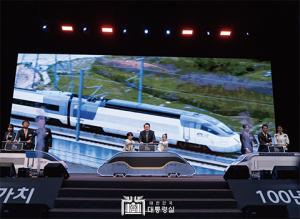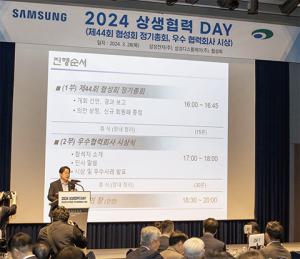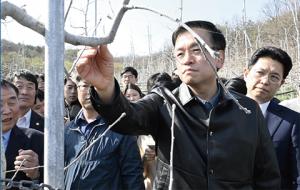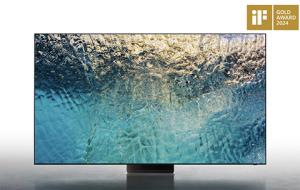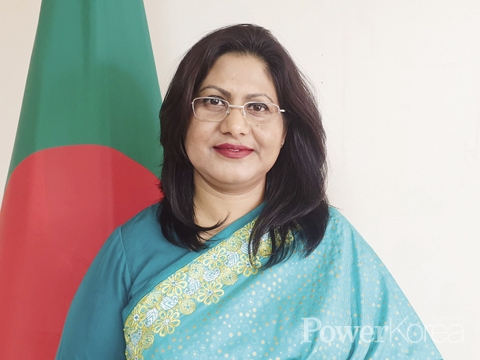 |
||
| ▲ H.E. Abida Islam | ||
Bangladesh is the 2nd biggest garment manufacturer in the world on which the country has pushed forward 6% yearly economic growth since 2011. In order to keep the pace, the government is encouraging expansion of infrastructure and energy as well as foreign direct investment with more than 35% of this year's budget by allocating in electricity, trailway, highway and water resources. While South Korean companies are making contribution to this growth and the recognition of Korean brand power is high in the country, South Korean Ministry of Trade, Industry and Energy organized Korea-Bangladesh Trade and Investment Briefing session on January 27 in collaboration with Bangladesh Department of Commerce, and Korea Importers Association. PowerKorea learned bilateral relations from the Bangladesh Embassy in Seoul.
Bangladesh and the Republic of Korea (ROK) have enjoyed friendly relations since the establishment of diplomatic relationship on 18 December 1973. The ROK established its diplomatic mission on 01 March 1975. Bangladesh opened its resident diplomatic mission in Seoul on February 16, 1987. Bangladesh continued to enjoy warm, friendly and active bilateral relations with Republic of Korea, since the diplomatic relations established in 1973. Both countries have commonality in their history of struggle for independence as they achieved their independence from occupation forces. Again, both countries struggled and sacrificed to preserve the dignity of their respective mother languages.
Based on the common values, democratic principles, ideals, and goal, Bangladesh-ROK relations have always been multifaceted. It encompassed political, economic, technological, defence, cultural, human development and other areas. Strengthening of strategic partnership between the two countries thus deserves to take all of these aspects into account. The trend of increased people to people contact continued with ever more number of Koreans visiting Bangladesh and a mentionable number of private sector and government delegations coming to South Korea.
High Level Visits from Bangladesh
Honorable Prime Minister Sheikh Hasina paid an official visit to Korea from 16 to 18 May 2010 at the invitation of His Excellency Mr. Lee Myung-bak, President of the Republic of Korea. Prime Minister Sheikh Hasina and her entourage were received by President Lee and senior officials and were accorded a warm welcome reflecting the close friendship and ties between the two governments and peoples. President Lee and Prime Minister Sheikh Hasina held official talks in a cordial atmosphere and exchanged views on a wide range of bilateral, regional and international issues.
High Level Visits from the Republic of Korea
Former Prime Minister Lee Young-duk visited Bangladesh in 2-4 September 1994 followed by the visit of former Prime Minister Kim Suk-soo from 8-10 November 2002. After 17 years, Prime Minister Lee Nak-yon visited Bangladesh from 13-15 July 2019 which created a momentum in the bilateral relationship. He was accompanied by a high level delegation, including a business delegation.
Bilateral Consultations Mechanism
With a view to further strengthen the political ties and to continue with regular exchange of dialogues, a standing mechanism of Foreign Office Consultations (FOC) headed by Foreign Secretary/Vice Minister is in place since 2009. The 2nd FOC took place in 2014. Three Joint Economic Commission meetings led by the Foreign Ministers of both countries were so far held while the Joint Economic Commission meeting aims to review progress in the areas of cooperation and to explore further areas of cooperation. The last Joint Economic Commission meeting took place on 08-11 December 1993.
Development Cooperation
Korean involvement in the development sector of Bangladesh continued to expand at a gradual pace. Korea continued to hold its position as a major foreign investor in Bangladesh. The ROK provides ODA to share its development experience with other developing countries in the world. As a bilateral development partner, it provides this ODA in the form of a grant through KOICA (Korea International Cooperation Agency) and soft loans through EDCF (Economic Development Cooperation’s Fund) conducted by the Export-Import Bank of Korea to the priority areas in health, ICT, education, water treatment, energy and transport, etc.
Bilateral Trade
The Republic of Korea has been one of the most reliable development partners of Bangladesh and has been extending significant cooperation and support to Bangladesh since the early 1970s. It is one of the major trading partners of Bangladesh. There is a steady increase in bilateral trade between the two countries which currently stands at approximately USD1.57 billion. However, Bangladesh’s exports to the ROK is only USD352.82 million and the trade balance is consistently in favor of the Republic of Korea. The main exporting items of Bangladesh to ROK are leather, woven garments, jute manufactures, pharmaceuticals, jute yarn and twine, knitwear, footwear, stainless steel wares, frozen fish, cap, copper wire and raw jute. Major items imported from ROK to Bangladesh are vegetable products, live animals, mineral products, plastic, textile, stone, machinery, mechanical appliances, vehicles, aircraft, optical, photographic, footwear, and umbrellas etc.
Investment
The Republic of Korea is a pioneer country to invest in Bangladesh and ranks the 6th in providing Foreign Direct Investment (FDI). Korean FDI in Bangladesh continues to increase moderately; gross inflow peaked up to US$1122.86 million in December 2018. Korea was the first country to set up an exclusive foreign Export Processing Zone (KEPZ) in Bangladesh and is still one of the top sources of FDI, especially in textile and garment sector. It is increasingly engaging itself in the infrastructure, energy, ICT and medical equipment sectors. More than 200 Korean companies have so far invested in Bangladesh. During the visit of the former Korean Premier Lee Nak-yon in July 2019, he expressed his interest to make cluster investment in the Special Economic Zone (SEZ) of Bangladesh.
Labour Relations
Labor market for Bangladesh continued to grow under the existing Employment Permit System. Bangladesh has been sending its unskilled workers to Korea under the Employment Permit System (EPS) since 2008 which has substantially reduced the cost of migration. Approximately 12,000 Bangladesh contractual employees under EPS are engaged in the manufacturing sector in Korea.
Cultural Cooperation
Bangladesh and ROK renewed the Cultural Exchange Programme between the two governments for the period 2019-2023 during the visit of the Korean Premier in July 2019. The Embassy maintains strong ties with Korean cultural organizations with active participation in their major events like Seoul Friendship Fair, Itaewon Global Festival, SIWA Bazar, Global Gatherings, and Rose Festivals, etc.
Cooperation in Education Sector
At present, approximately 1,000 Bangladeshi students are studying in different universities all over Korea at different levels, mostly in science and engineering. They are fully or partially funded by the government of Korea and in some cases by the respective universities, depending on their respective results. The cooperation in the field of education is in line with the Cultural Agreement 1979.
Bangladesh Community in the Republic of Korea
Currently, there are more than 19,000 Bangladesh living in ROK and among them, over 12,000 are EPS workers. Almost 1,000 Bangladesh students are pursuing their masters, Ph.D. and post-doctorate degree in different universities. Others include professionals and business people. The Embassy engages with them through a series of national, cultural and social events. It often organizes dialogues and seminars with the students to exchanges views with them. Source: Bangladesh Embassy Seoul
김종관 기자 powerkorea_j@naver.com

